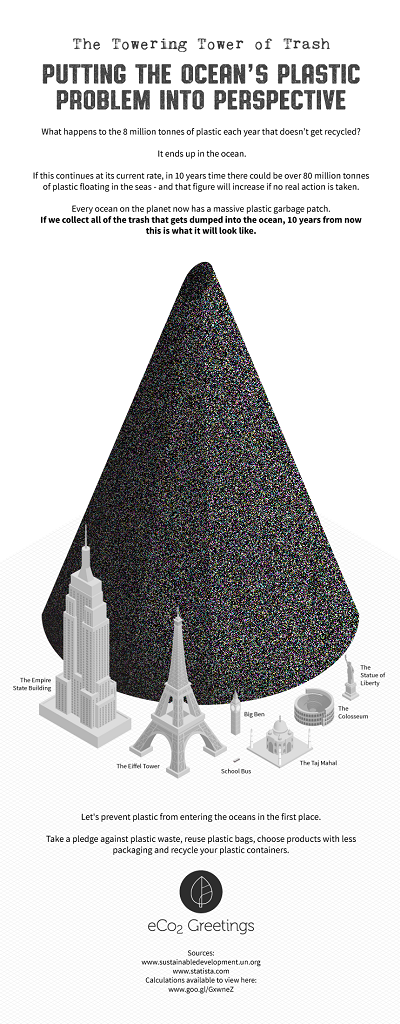The Urgency to Reduce Plastic Waste
Our planet has a population of over 7.5 billion people and as a result we dump a massive 2.12 billion tons of waste per year. This is partly because 99% of the stuff we buy gets binned within 6 months of purchasing - this isn’t including food, human, electronic and medical waste either.
This waste ends up in a variety of different locations; landfill sites, dumps, and worst of all the ocean. If it continues at its current rate, in 10 years' time there could be over 80 million tons of plastic floating in our seas - and that figure will continue to increase if no real action is taken soon. To put that into perspective, the graphic below shows just how much waste that really is.

It is estimated that up to 267 marine species are affected by plastic pollution within the ocean - and that’s just in the South Pacific Garbage Patch alone. So how can we - as a globe - start to reduce the amount of waste that goes into our oceans?
Well, there are simple ways to do this:
-
Stop using plastic straws. They get mistaken for food and can get stuck in the mouths and noses of marine life.
-
Reuse your shopping bags.
-
Give up gum. Gum is made of a synthetic rubber aka plastic.
-
Purchase products in boxes not plastic bottles. Cardboard decomposes.
-
Eat fresh produce that doesn’t come in plastic containers or wrap.
-
Rcycle your rubbish and donate your plastic toys!
-
Support beach and river cleanups.
-
Avoid microbeads in your face and handwashes.
-
Spread the word about organizations that are addressing plastic pollution.
The plastic that is ending up in oceans is being transported all around the globe with currents. Imagine remote beaches on small Pacific islands, British coves and even Arctic ice, covered in plastic.
So, the next time you get a straw in your drink or get offered a plastic bag while doing your food shopping, think about our ocean.
This piece was presented by Eco2 Greetings


















